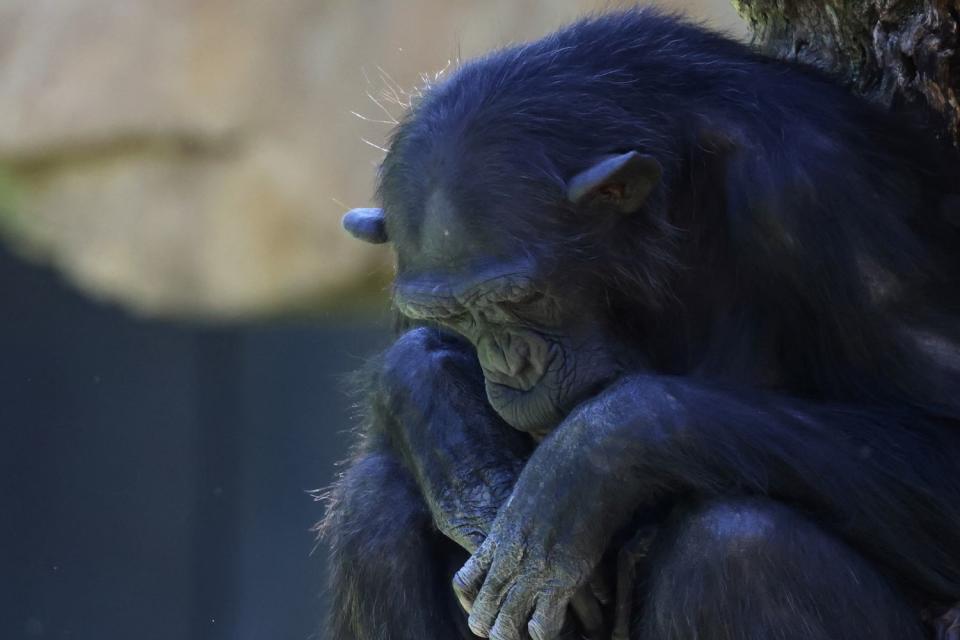Grieving Zoo Chimpanzee Continues to Cling to Her Late Child Three Months After Baby's Death
Natalia the chimp has been carrying her dead baby since February when the newborn primate died a few days after their birth

REUTERS/Nacho Doce
Natalia the chimpanzee at BIOPARC ValenciaA zoo chimpanzee's child died in February. Three months later, the grieving mother continues to carry the baby chimp's body.
In February, a chimpanzee named Natalia gave birth at BIOPARC Valencia, a zoo park in Valencia, Spain. Several days later, the newborn primate died. Natalia has refused to part with the baby chimpanzee's body since, Reuters reported.
According to the outlet, Natalia started holding her child's body to her chest shortly after the baby chimpanzee's death and has continued to cling to the body, walking around with it in the zoo's chimp enclosure since February. Recent photos of Natalia at the zoo show the ape interacting with other chimps while cradling the dead baby's body.
Since Natalia has continued to carry her child's remains — now in an advanced state of decomposition — BIOPARC employees have had to explain her situation to zoo-goers who were initially unsettled by the sight, Miguel Casares, the head of the Spanish zoo, told Reuters.
Related: Shock Twist at Columbus Zoo as 'Male' Gorilla Gives Birth to Surprise Baby Girl
"Our visitors, who at first are quite shocked by the sight of a dead baby, understand as soon as we explain to them why we have left it and why we keep it under observation," he told Reuters.
The zoo's reason? The chimpanzee is grieving the death of a loved one in her own way.
And Natalia's choice to keep her child's body close is not unusual, according to Casares. "This is a conduct that has been previously observed in chimpanzees, not only in zoos but also in the wild," he told the outlet.
Casares added that though Natalia's mourning process has lasted longer than expected, it should be respected, just as different grieving styles are among humans.
The zoo has closely monitored Natalia, who lost a child in 2018 as well, since the death of her child in February, Reuters reported.
BIOPARC did not immediately respond to PEOPLE's request for comment.
Never miss a story — sign up for PEOPLE's free daily newsletter to stay up-to-date on the best of what PEOPLE has to offer, from celebrity news to compelling human-interest stories.
A grieving animal mother keeping her late child close after death is a behavior that has been observed in orcas as well.
In August 2018, a mother orca whale exhibited what scientists dubbed an "unprecedented" period of mourning, carrying her dead calf off the coast of Seattle for over two weeks.
At the time, scientists worried for the grieving whale's health, as she not only carried her late offspring but also lost the desire to forage and feed, which put her in danger of losing her foraging abilities.
But after 17 days, the whale finally parted with the body, the Center for Whale Research announced at the time, writing that the mom "vigorously chased a school of salmon with her pod-mates in mid-Haro Strait in front of the Center for Whale Research for a half mile — no longer carrying the deceased baby that she had carried for at least seventeen days and 1,000 miles."
"Her tour of grief is now over and her behavior is remarkably frisky."
For more People news, make sure to sign up for our newsletter!
Read the original article on People.

